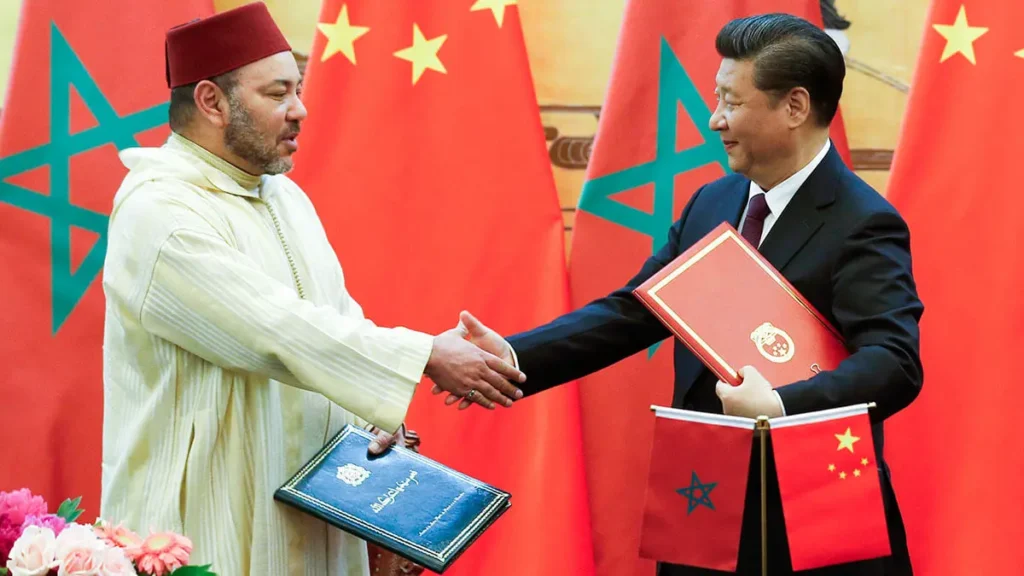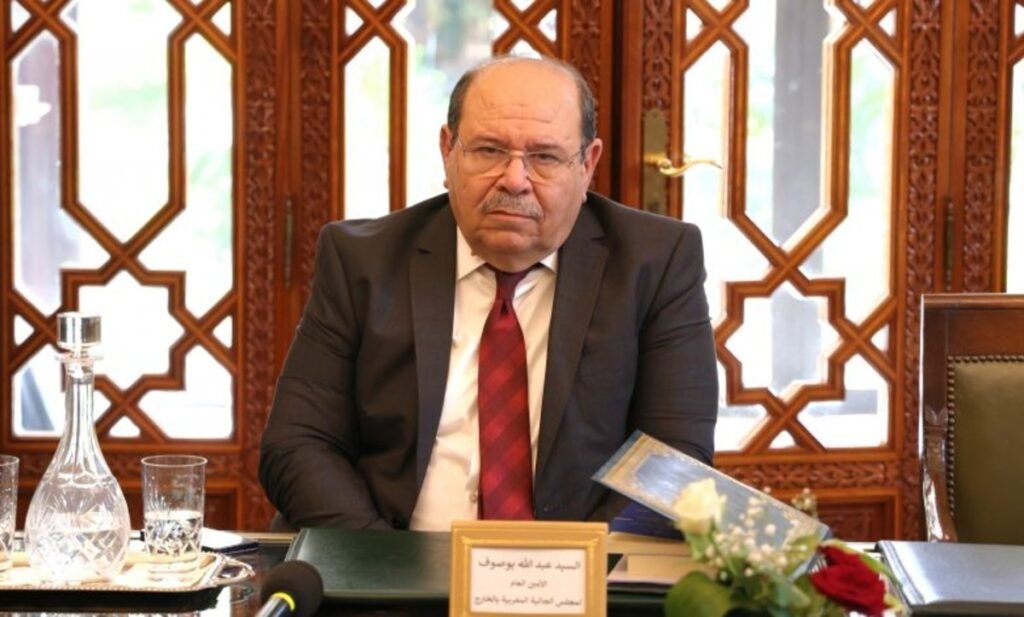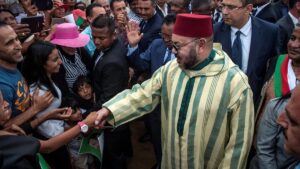"Win-Win": King Mohammed VI and the Chinese President intersect in their call for a new world order.

Dr. Abdullah Boussouf (Historian, Secretary General of the Council of the Moroccan Community Abroad)
Today's world no longer needs more rhetoric of war or the logic of zero-sum conflicts, as much as it needs to develop a new vision that establishes more just and balanced international relations. Recent decades have proven that the logic of power and dominance has only perpetuated deep imbalances, whether through devastating wars or through forms of economic and political dependency that have left many countries in the South trapped in a vicious cycle of weakness. In this context, influential voices have emerged calling for a break with the "win-lose" model that has governed international relations for decades, and for an alternative model based on a "win-win" principle.
In his recent eight-minute speech, the Chinese president emphasized that the current international order is experiencing a real crisis due to the logic of conflict and hegemony, calling for the construction of a new global order based on mutual interests and common development. This proposal did not come out of nowhere; rather, it reflects the awareness of a superpower like China that global stability will only be achieved if everyone feels they are beneficiaries, not mere pawns in the game of the great power balance.
However, this idea was not born of the moment. His Majesty King Mohammed VI was the first to propose it since the beginning of the third millennium, when he laid the foundations for a strategic vision for Morocco's relations with Africa. In his numerous speeches, His Majesty emphasized that the African continent does not need discourses of guardianship or pity, but rather practical partnerships that yield tangible projects and achieve sustainable human development. The King has repeatedly emphasized that African-African cooperation must be based on equality and mutual respect, far removed from the logic of exploitation and impositions. This has been embodied in the major initiatives and projects launched by Morocco on the continent.
From the Nigeria-Morocco gas pipeline project to banking and commercial investments, renewable energy projects, and even the health initiatives Morocco launched during the COVID-19 pandemic by sending medicines and vaccines to several African countries, the "win-win" principle has become a practical reality, not just a political slogan. This has reinforced Morocco's image as a rising country in Africa, capable of building bridges of South-South cooperation in a spirit of solidarity and integration, rather than dependency and division.
While the Chinese president's speech focused on the need to move beyond the zero-sum game in international relations, the recent royal message addressed by His Majesty King Mohammed VI to participants in the current session of the International Law Institute, held in Rabat last August, added an important dimension to this global debate. His Majesty called for the establishment of a new world order that respects international law and breaks with the logic of force and the politics of fait accompli. He emphasized that respect for international legitimacy is not merely a legal obligation, but rather a fundamental guarantee for maintaining international peace and security. This message reaffirmed that the call for a "win-win" approach is not limited to its economic or developmental dimensions, but also encompasses its legal and moral dimensions, given that a just international order can only be based on clear and binding legal foundations.
The convergence of the vision of a superpower like China and that of a rising country like Morocco reflects a profound shift in contemporary geopolitical thought. China, a rising power on the cusp of global leadership, understands that its interests will only be sustained by building a just balance that benefits all parties. Morocco, a rising country in Africa, understands that its future is tied to strengthening regional integration and engaging in fair partnerships with its African and global partners. This convergence between the Far East and the Far Maghreb reveals a common thread that unites the two visions: rejecting the logic of exploitation and hegemony, and offering an alternative based on fairness and justice.
Western thought in international relations has traditionally based its theories on the logic of power, whether in classical realism, which made interests the end justifying the means, or in liberalism, which linked cooperation to the political gains of major elites. Today, the "win-win" principle provides the basis for what might be called a "new realism," but a humane and moral realism that transcends the logic of the Cold War and colonial wars. It measures the strength of states by their ability to build just and sustainable partnerships, not by their ability to impose hegemony or control.
From this perspective, it can be said that King Mohammed VI was a pioneer in formulating this vision from within the African continent, making South-South cooperation a cornerstone of Moroccan foreign policy. When China adopted this approach globally, it seemed as if we were witnessing a broad geopolitical transformation reshaping international relations on more just and equitable foundations. We are witnessing a pivotal moment that may mark the beginning of a quiet revolution in global political thought, one that restores respect for international law and places human beings at the heart of relations between states.
Perhaps history will remember that this joint call, from Rabat to Beijing, established a new phase in international relations, where the "win-lose" game is no longer acceptable. Rather, it has become necessary to transition to a "win-win" model that achieves shared development, promotes mutual interests, and respects international law. It is a strategic vision that looks to the future and restores international relations to their humane and moral dimension at a time when the world is most in need of mutual fairness and comprehensive justice.






